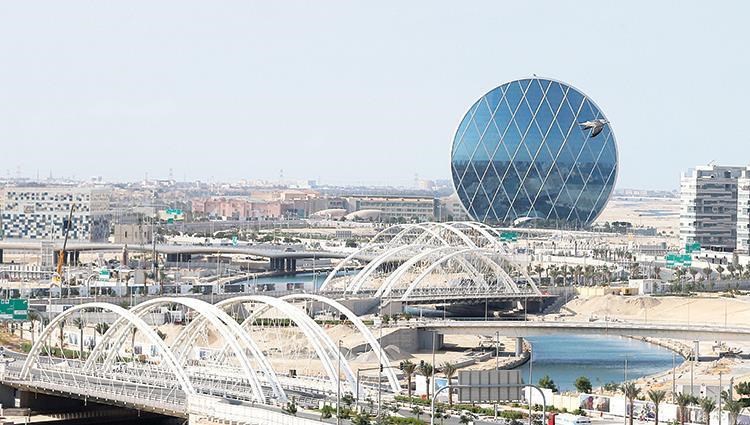
[ad_1]
Economic development

Abu Dhabi (Al Ittihad)
Hatem Farouk (Abu Dhabi)
The long-term rating of Abu Dhabi's global ratings agencies contributes to boosting the local economy at international level and to the strong externalization of the emirate's economy, which, according to economists, contributes to sustainable growth in various economic sectors in Abu Dhabi.
The global rating agency Fitch has confirmed that Abu Dhabi's strong credit rating is due to the effectiveness of its financial and external standards as well as the GDP per capita growth.
Mohammed Ali Yasin, chief strategist and client at Al Dhabi Capital Limited, said that Fitch's statement of the long-term sovereign rating of local and foreign currencies Abu Dhabi in AA with a steady outlook clearly demonstrates the strength of the emirate economy, and that this high ranking is supported by only a few large countries.
"Such ratings are a clear guide to the various institutions that keep growth, which helps lend at a very low cost compared to the cost of financing around the world," said Yassine Al Ittihad.
The Abu Dhabi government ranked third in the world, according to Fitch Ratings, with more than 190% of its GDP in 2018. Government debt is rated as the second lowest debt among the agency's ratings to 7% of GDP Overall, this rating is the best in GCC region.
Yaseen revealed that the stabilization of the Fitch Ratings agency for the Abu Dhabi emirate again reaffirms the government's revenue growth and increases government spending on infrastructure projects and large urban investments indicating the success of the Abu Dhabi government plans and strategies to overcome barriers and problems associated with falling oil prices. years is another proof of how much the emirate's economy depends on the outputs of the knowledge economy and the general trend of maximizing local government revenues from non-oil sectors.
In its classification, the agency said the surge in oil prices over the recent period led to a significant increase in government revenue in Abu Dhabi, which also led to a high government spending rate that would reach 2.1% of GDP in Abu Dhabi in 2018, higher prices oil will increase revenue by 30%, while government spending will grow by about 8%.
"The stabilization of the Fitch rating agency in Abu Dhabi on AA with a steady outlook next year will see the growth of emirates in the oil and non-aviation sector as government spending rises," said Al-Dhabi Capital CEO, Creating New Job Opportunities for Citizens and Foreign Citizens continuing the pace of expenditure on infrastructure projects, thereby contributing to the support of various other economic sectors related to expenditure, such as the property and contractual sectors and the other financial and banking sectors.
Fitch predicts that real GDP growth in Abu Dhabi will increase to 2% in 2018, with the oil sector increasing by 2.5% this year and by 3.5% in 2019 and 2020.
Tariq Qaqeesh, Managing Director of Asset Management, Mena Corp., said: "The positive outlook of international credit rating agencies on the strength and power of the Abu Dhabi economy is not a vacuum, after successful emirate financial reforms over the last two years.
He added that the government of Abu Dhabi recently completed a legislative and economic legal structure that facilitates easy business and related industries. This has helped to attract more international investment to work in the emirate to capitalize on significant investment opportunities that have become the center of the world's largest companies. International.
The assessment reflects the long-term growth prospects supported by large domestic investments in equity portfolios as well as structural government reforms that will support future growth rates and improve economic dynamics in non-oil sectors.
Source link
